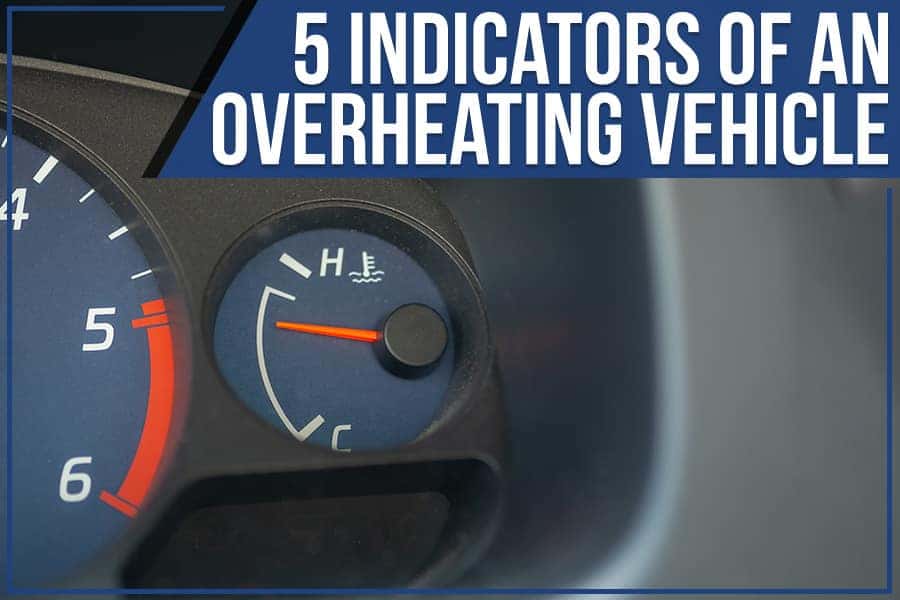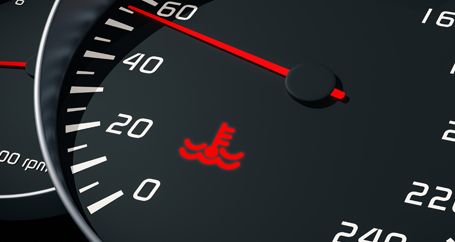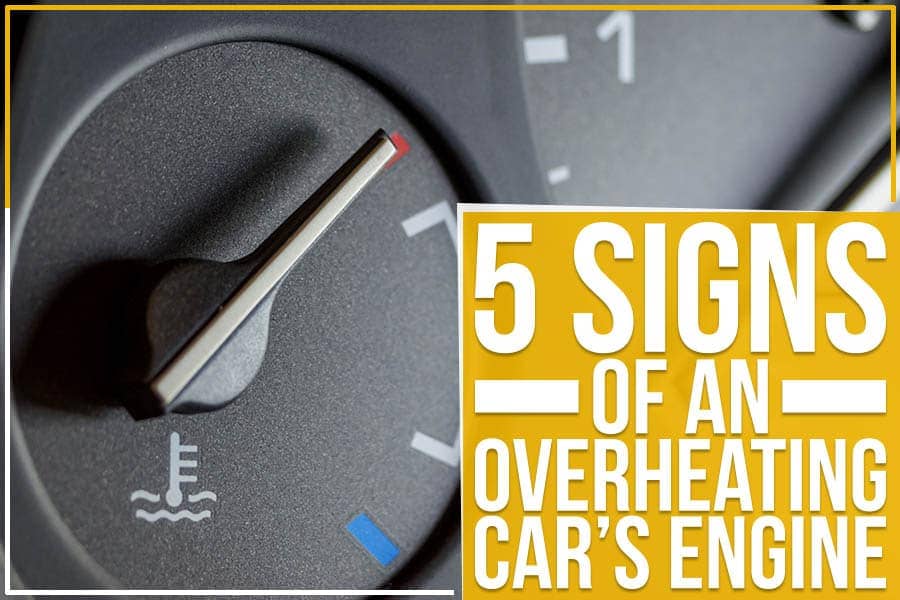If your car is overheating, you may notice the temperature gauge rising rapidly or steam coming from the engine. Other signs include a hot, burning smell or the check engine light turning on.
Knowing whether your car is overheating is crucial for preventing potential damage and ensuring your safety on the road. A car that is overheating can be caused by various factors, such as a malfunctioning cooling system, low coolant level, or a faulty thermostat.
It’s important to be aware of the warning signs and take immediate action if you suspect your car is overheating. We will discuss the common indicators of an overheating car and provide tips on what to do if you encounter this issue while driving.

Credit: www.jerryulmchryslerdodgejeepram.com
Signs Of Overheating
When it comes to your car’s performance and safety, it’s essential to be aware of any signs of overheating. Ignoring this issue can lead to costly repairs and potential engine damage. To help you identify when your car is overheating, here are a few key indicators you should look out for:
Steam Coming From Engine
If you notice steam rising from your car’s engine, it could be a clear indication of overheating. Steam is caused by the intense heat generated by the engine, which evaporates the coolant and releases it as vapor. This is a serious issue that requires immediate attention, as it can lead to engine failure if left unaddressed. When you see steam, it’s important to pull over to a safe location and turn off the engine to prevent further damage.
Temperature Gauge In The Red Zone
Monitoring your car’s temperature gauge is crucial to identifying overheating. The temperature gauge is typically located on the dashboard and measures the engine’s operating temperature. If the needle on the gauge reaches or exceeds the red zone, it means your engine is running too hot. This could be due to a malfunctioning cooling system or a lack of coolant. Ignoring this warning sign can be detrimental to your engine’s health, so it’s crucial to take immediate action.
Burning Smell
An unmistakable burning smell is another indication of engine overheating. When the engine gets too hot, different components may begin to overheat and emit a distinct odor of burning plastic or rubber. This smell often indicates that important parts like hoses, belts, or wiring may be melting or deteriorating due to excessive heat. If you notice a burning smell coming from your car, it’s important to address the issue promptly to prevent further damage.

Credit: www.farmers.com
Causes Of Overheating
Coolant Leaks
If your car is overheating, coolant leaks are a common culprit. Coolant leaks can occur due to damaged hoses, a cracked radiator, or a faulty water pump. When the coolant level drops, it can lead to overheating, so it’s essential to regularly check for any signs of leaks.
Faulty Thermostat
A faulty thermostat can also cause your car to overheat. When the thermostat fails to open and close as it should, it can disrupt the proper flow of coolant through the engine, resulting in overheating. Regular maintenance and timely replacement of the thermostat can help prevent this issue.
Radiator Issues
Issues with the radiator such as clogs, leaks, or blockages can lead to inadequate cooling of the engine, causing it to overheat. Routine checks and maintenance of the radiator, including flushing and cleaning, can help prevent these problems and keep your car running smoothly.
Preventive Measures
To determine if your car is overheating, watch for warning signs like steam emitting from the engine or the temperature gauge spiking. Regular maintenance can help prevent overheating issues, such as checking coolant levels and inspecting the radiator for leaks.
Regular Inspection
Regularly inspecting your car for signs of potential overheating is crucial for preventing major issues. Look for leaks, damaged hoses, or a degraded radiator that could lead to overheating. Addressing these issues promptly can prevent overheating and costly repairs.
Checking Coolant Levels
Check the coolant levels in your car regularly, especially before long trips or during extreme weather. Maintaining the right level of coolant can significantly reduce the risk of overheating by ensuring proper heat dissipation in the engine.
Proper Ventilation
Ensure that your car’s radiator and engine bay have proper ventilation. Clear any debris that may obstruct airflow to the radiator, and ensure that the radiator cap is tightly sealed to prevent coolant evaporation, which can lead to overheating.

Credit: m.youtube.com
Immediate Actions
When it comes to your car overheating, taking immediate actions is crucial in order to prevent further damage. If your car’s temperature gauge is running in the red or you notice steam coming from under the hood, it’s important to act quickly to avoid serious engine problems. Below are the three immediate actions you should take:
Turn Off Air Conditioning
If you suspect your car is overheating, the first thing you should do is turn off the air conditioning. The AC puts an extra strain on the engine, generating more heat and making the situation worse. By turning off the AC, you can help reduce the workload on the engine and give it a chance to cool down.
Turn On Heater
Another step you can take to help cool down your overheating engine is to turn on the heater. It might sound counterintuitive, especially if you’re already feeling the heat on a scorching summer day, but the heater acts as a secondary cooling system. By turning on the heater and blasting hot air into the cabin, you are effectively transferring some of the engine’s heat to the interior of the car. While it may not be the most comfortable option, it can help prevent your engine from overheating further.
Pull Over Safely
If your car’s temperature continues to rise despite turning off the AC and turning on the heater, it’s important to pull over safely. Look for a safe spot on the side of the road or an exit if you’re on the highway. Pulling over as soon as possible will help prevent any further damage to your engine and avoid putting yourself at risk on the road.
In conclusion, when your car shows signs of overheating, it’s essential to take immediate actions. Remember to turn off the air conditioning, turn on the heater, and pull over safely. By doing so, you can prevent further damage to your engine and ensure your safety on the road.
Seeking Professional Help
Calling Roadside Assistance
If your car is showing signs of overheating, contact roadside assistance for immediate help.
Contacting A Mechanic
If the issue persists, call a mechanic to inspect and diagnose the overheating problem.
Towing The Vehicle
In cases of severe overheating, tow the vehicle to prevent further damage and ensure safety.
Frequently Asked Questions On How Do You Know If Your Car Is Overheating
What Are The Signs Of Car Overheating?
Signs of car overheating include a rising temperature gauge, smoke coming from the engine, a strong smell of coolant, and loss of power. Check for these warning signs to prevent further damage to your vehicle.
How Do I Stop My Car From Overheating?
To prevent car overheating, check coolant levels, radiator, and hoses regularly. Stop if temperature gauge rises and turn off the A/C. If overheating persists, seek professional assistance. Regular maintenance can prevent overheating issues.
What Is The First Thing You Check When A Car Is Overheating?
The first thing to check when a car is overheating is the coolant level. Ensure the radiator is filled to the proper level and the coolant is not leaking. If necessary, allow the engine to cool before opening the radiator cap.
If low, add coolant and check for any visible leaks.
At What Point Is A Car Considered Overheating?
A car is considered overheating when its temperature gauge exceeds the normal range, typically around the red mark.
Conclusion
To sum up, being able to recognize the signs of an overheating car is crucial for the safety and longevity of your vehicle. By paying attention to warning signals such as steam coming from the hood, a rise in the temperature gauge, or a strong smell of coolant, you can take immediate action to prevent further damage.
Regular maintenance and keeping an eye on the coolant levels and radiator are essential in preventing overheating issues. Don’t ignore these signs; trust your instincts and address the problem promptly. Your car will thank you.
